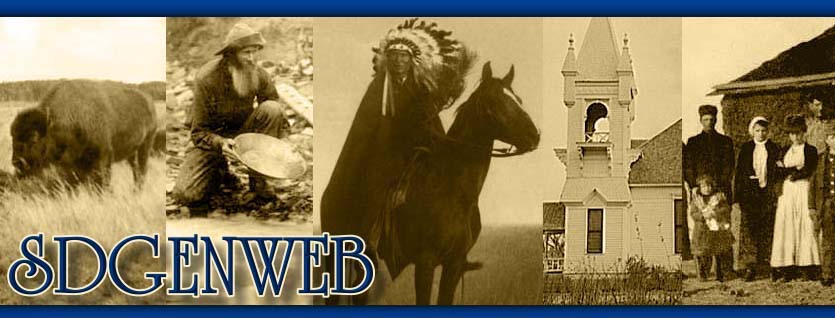
In 1803, the United States
purchased the Louisiana Territory from Napoleon, and
President Thomas Jefferson organized a group commonly
referred to as the "Lewis and Clark Expedition" to explore
the newly-acquired region. The expedition, also known as the
Corps of Discovery, would travel through the area twice
along the Missouri River on their way to and from the
Pacific Ocean.
In 1817, an American fur trading post was set up at
present-day Fort Pierre, beginning continuous American
settlement of the area. During the 1830s, fur trading was
the dominant economic activity for the few Whites that lived
in the area. Settlement by Americans and Europeans was by
this time increasing rapidly, and in 1858 the Yankton Sioux
signed the 1858 Treaty, ceding most of present-day eastern
South Dakota to the United States.
An increasing population caused Dakota Territory to be
divided in half and a bill for statehood for North Dakota
and South Dakota (as well as Montana and Washington) titled
the Enabling Act of 1889 was passed on February 22, 1889
during the Administration of Grover Cleveland. It was left
to his successor, Benjamin Harrison, to sign proclamations
formally admitting South Dakota to the Union on November 2,
1889.
*SDGenWeb 2025*
SDGenWeb State Coordinator - Linda Ziemann
SDGenWeb Assistant State Coordinator -Bob Jenkins
History/Chronologies of the "Dakota Territory"
|

